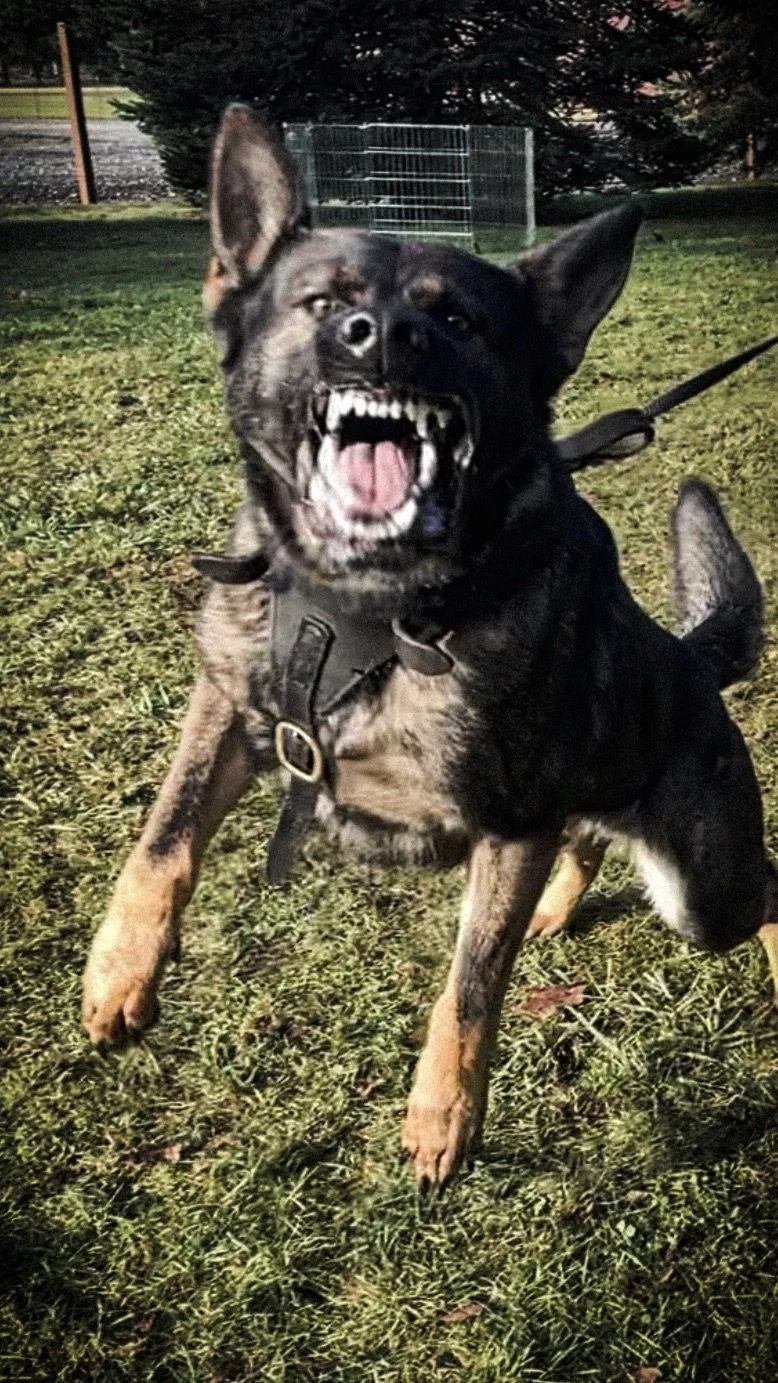Does your dog bark, growl, or run towards other dogs when you’re on a walk or when someone walks past your home? It’s common for dogs to be Reactive or “hyper-aware” of other dogs nearby, however, it’s not simply disobedient behavior, so shouldn’t be correlated with punishment. In fact, many obedient dogs still exude Reactive behavior. It’s actually a stress response in the body from specific triggers, etc. If your dog does act like this, however, it’s important to start immediately to try and fix the issue. The longer a pup continues the reaction, the more difficult and longer it will take to correct - or you could end up with a legal case on your hands.
We suggest bringing your dog to an animal behaviorist such as the ones here at ISDC, who can handle reactive canine cases and show tangible results, immediately. In the meantime, here are a few training tips to try and curb the negative behavior at home. It is essential not to take your dog to an “average” dog trainer for these sorts of problems as, more often than not, they are not properly equipped to handle aggression and will attempt to fix a problem they can’t or have often no experience in.
Find out what triggers your dog, and try to avoid it whenever you can. Don’t attempt to fix the issue by for example forcing social interaction that your dog doesn’t want.This can be social interaction with your friends or other dogs. In more cases than not, your dog is responding reactively because he or she is actually scared. By attempting to push your dog onto other ones in the hope that they’ll “get used to it,” you’re doing more harm than good. Dogs have similar emotions as we do; some can be shy and some can be introverted.
There may be other issues that need to be solved. Most of the time. A reactive dog may more often have other issues, such as a fear of other dogs, caused by previous bad socialization and underlying anxiety issues. These anxiety issues should be addressed. Pay attention to how your dog reacts and what exactly triggers the anxiety or fear and in worst cases sets them off. Write everything down, reread your notes, and look for trends and hints as to what else might need work. Bring these notes with you if you go seek help.
When you start your training, always set small goals. Don’t expect your dog to lose anxiety behaviors overnight. He or she needs small, positive reinforcements and to be rewarded for reaching these smaller goals. It’s important to reward yourself as well. Having small goals to reach will limit the amount of stress and anxiety involved, which your dog is highly sensitive to already
Don’t blame yourself or your dog for their behavior. Anxiety and reactive can be caused by numerous various reasons. By doing so, that negative resentment will rub off onto how you’re training your dog and nothing will get solved. Focus on the future and how your relationship with your dog will be a closer one once their behavior is fixed. Excuses aren’t going to solve anything.
Remember, reactive dogs aren’t acting the way they do because they want to disappoint you or even to attack another dog. You can solve the problem and both you and your dog can learn some valuable life lessons through effective training techniques at a highly credited training institution.
Interested in learning more about the ISDC and how we can help you and your dog using the best training techniques available? Reach out for a conversation today.
